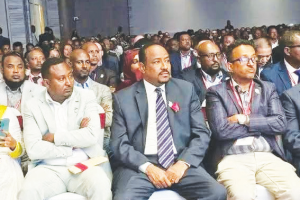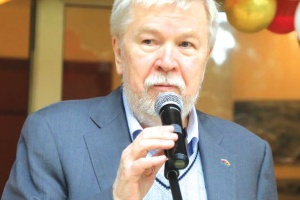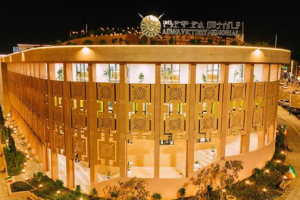
BY MULUGETA GUDETA
By definition, culture in general is a broad notion encompassing various realms of human life and human behavior. Is peace part and parcel of human culture? Is there what we call here a ‘Culture of Peace’? The answer to both questions is an undisputed yes. The answer to the first question is that only humans are endowed with culture which is by itself a human attribute or the essence of being human. The answer to the second question is also yes. There is something called Culture of Peace. As defined by the United Nations, “Culture of peace” is “a set of values, attitudes, modes of behavior and ways of life that reject violence and prevent conflicts by tackling their root causes to solve problems through dialogue and negotiation among individuals, groups and nations.”
Traditionally, Africa has been a peaceful continent with its own systems of tribal or clan organizations and administrations however primitive they might have been. Africans lived in relative peace with themselves for many centuries. Inter clan whenever misunderstandings occurred among the traditional communities leading to inter tribal or inter-clan conflicts, there were traditional methods of conflicts resolutions in place to overcome temporary misunderstandings and restore peace. The advent of colonialism in the 19th century overturned the otherwise peaceful social and economic environments that prevailed for centuries and introduced a major era of conflicts between indigenous Africans and Western colonial powers as the most devastating historical phenomena whose deep scars and complex legacies are still negatively affecting Africa’s quest for peace and economic development.
Traditional conflict resolution mechanisms in Africa varied according to the history, traditions, psychological makeup and spiritual lives specific to the indigenous peoples. These factors changed through times and took their on specific paths to evolutionary processes, crystallizing in what we now know as African cultures of peace and conflicts resolution mechanisms that are specific to every country on the continent. Speaking of traditional conflict resolution systems, we can perhaps mention Ethiopia with the Oromo Gaddaa system which is considered one of the living examples of a tradition that has survived for centuries and is still shaping the basic attitudes of the Oromo people with its relatively more elaborate institutions and practices based on the needs and aspirations of the people.
As an introduction to a study entitled, “The Gada System and the Oromo’s (Ethiopia) culture of peace”, Abdurahman Abdulahi Aliye writes that, “The purpose of this study to add to recent calls to develop indigenous knowledge of peace systems and culture development to promote culture of peace in Africa, It assesses the indigenous Gadaa system peace concepts and culture, identifying its peace related values, philosophies traditions, institutions, etc, for nurturing and sustaining peace in the Oromo society, with the neighboring ethnic group, and its relevance to creating peace culture in Africa and beyond.”
The authors went on to say that his study relates, “Gadaa peace system with the UN peace system initiative and framework in demonstrating the relevance of Gada peace system to peace building in multi-ethnic conflicts transformation in the Horn of Africa and beyond.” Various sociological and political studies conducted around the Gadaa peace system in general and the Gadaa social and political organization in particular suggest that the Oromo people had developed a well-functioning and holistic approach to traditional social and political organization under the Gada system.
The Oromo Gada system is still relevant in many parts of the Oromia region where rural communities are still practicing some of the most salient features of the system which obviously needs to be modernized and made relevant to contemporary society under changed economic and political conditions. Like in any part of Africa, the Gada system still needs creative application of its main tenets in order to steer society to a system of democratic decision making and economic development. This is largely the task of the elites in Africa that still remains unfulfilled for many reasons.
Of course a peace building system that is relevant to a certain society may not be so to another or different society. The Gadaa peace system is certainly relevant to the Oromo society but it cannot copied and applied elsewhere in the country although it may have important lessons to be learned from it by people living in different parts of Ethiopia. The best option would be for each region to explore its own past and discover the most relevant social, economic and political organizations that existed in the past, resurrect them and reshape them so that they can live up to present-day challenges. Since developing the peace culture is a common objective of people living in every part of Africa and Ethiopia, it is relevant to work in unison towards it by learning from one another experiences and traditions.
Although studies in this area are not readily available today, traditional conflict resolution systems were more or less present in most parts of Ethiopia with varying degrees of influence and consolidation. In northern Ethiopia for instance, mainly in Amhara and Tigray regions, conflicts at village levels were resolved through grassroots assemblies or counsels of village elders who regularly meet to discuss peace and stability in their specific areas and regulate the peaceful coexistence of people with their immediate neighbors or with other peoples living on their border areas.
The causes of conflicts in those days were not political but mainly cultural and economic as resources were limited and access to them sometimes leads to disputes that were mostly overcome before they deteriorated into wars. With the exception of the internal disputes for power during the Middle Ages, Ethiopians had managed to live in relative peace thanks to their spiritual resources that respect to human lives as the most sacred social obligation.
The situation is more or less similar in other parts of Africa where a strong village authority served as the backbone for peace-keeping and conflict resolution among the various traditional clans or tribes. As we said above, the advent of colonialism and then imperialism overturned the otherwise stable and prosperous lives of the African people who evolved their own systems of administration based on their cultures and traditions.
Humanity has made tremendous advances in terms of technological and economic advances but it has somehow regressed in terms of implementing the culture of peace. The situation looks paradoxical. The more humanity takes giant steps in economic technological developments, the less it cares about the culture of peace that is fast vanishing here and there. It is therefore time for Africans everywhere to fight hard to reclaim the positive legacies of their ancestors who, in a situation of economic and technical underdevelopment, had managed to evolve their own peace culture and lived more or less in relative stability. The main task of reviving the African tradition of peace keeping and conflict resolution obviously falls on the shoulders of Africa’s educated sons and daughters everywhere. The struggle may be long and multifaceted, but there is no alternative for Africa than rediscovering its legacy of peace culture through its own soul-searching efforts.
The Ethiopian Herald 22 June 2023





